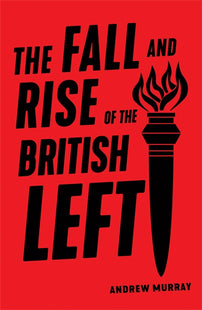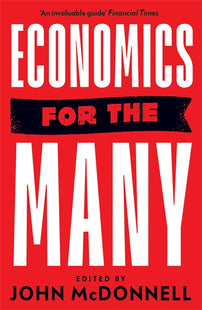5 books on socialism for the 21st century
In partnership with The World Transformed, we present reading that offers new alternatives to Capitalism. All 50% off until May 24th.

COVID 19: we are still delivering books ordered directly from our website. See further information on safety practices from our warehouses here.
Labour’s 2019 election defeat marks a turning point in the history of the Labour Left’s struggle to democratise the Party and put socialism into the heart of the British State. It is vital that socialists use this moment to reflect on the experiences and limits of the search for socialism through the Labour Party, to equip us for the struggle in the years to come.
Join us and The World Transformed for our fortnightly webinar series on a history of socialists within and outside of the Labour Party from 1945 to today beginning with the spirit of 45 and the new forms of common ownership with Leo Panitch, Colin Leys and Tariq Ali.
Register here: https://bit.ly/2SjIgBy
See our books from leading voices on the Left, proposing how we might build practical alternatives to Capitalism and continue the project of the New Left, in new ways.
Jeremy Corbyn’s rapid ascent to the leadership of the Labour Party, driven by a groundswell of popular support particularly among the young, was met at the time by a baffled media. Just where did Jeremy Corbyn come from? In Searching for Socialism, Leo Panitch and Colin Leys argue that it is only by understanding Corbyn's roots in the Bennite Labour New Left’s long struggle to transcend the limits of ‘parliamentary socialism’ and democratise the party, as a precondition for democratising the state, can you understand his surge to become leader of the party.
[book-strip index="2" style="buy"]This book is essential reading for those who want to know where Corbynism comes from: the policies, personalities and moments of resistance that have produced this new horizon. This includes the story of power struggles within the Labour Party, and the eventual defeat of New Labour. The movements outside it—unions, feminists groups, anti-fascists activists, anti-war protestors—that have driven the policies of the movement forward. And the powerful influence of international groups that have shaped the potential for a global progressive politics.
[book-strip index="3" style="buy"]Economics for the Many, edited and with an introduction by Shadow Chancellor of the Exchequer John McDonnell, features contributions from the participants in his New Economics conferences, including Barry Gardiner, Ann Pettifor, Prem Sikka, and Guy Standing. It covers topics from housing, public ownership, and fairer international trading systems to industrial policy for the twenty-first century and how to tackle tax avoidance and regional imbalances. Together, the essays in this volume lay out a vision for a new economics, one that works for the many, not the few.
[book-strip index="4" style="buy"]“The most important leftist book of the year, and probably the decade.”—Charles Mudede, The Stranger
The all-encompassing embrace of world capitalism at the beginning of the twenty-first century was generally attributed to the superiority of competitive markets. Globalization had appeared to be the natural outcome of this unstoppable process. But today, with global markets roiling and increasingly reliant on state intervention to stay afloat, it has become clear that markets and states aren't straightforwardly opposing forces.
[book-strip index="5" style="buy"]For the left and the right, major multinational companies are held up as the ultimate expressions of free-market capitalism. Their remarkable success appears to vindicate the old idea that modern society is too complex to be subjected to a plan. And yet, as Leigh Phillips and Michal Rozworski argue, much of the economy of the West is centrally planned at present. Not only is planning on vast scales possible, we already have it and it works. The real question is whether planning can be democratic. Can it be transformed to work for us?




